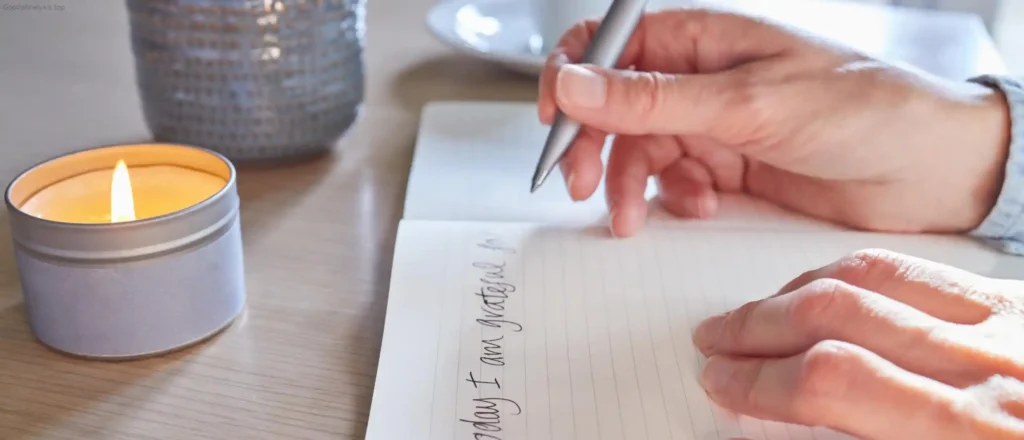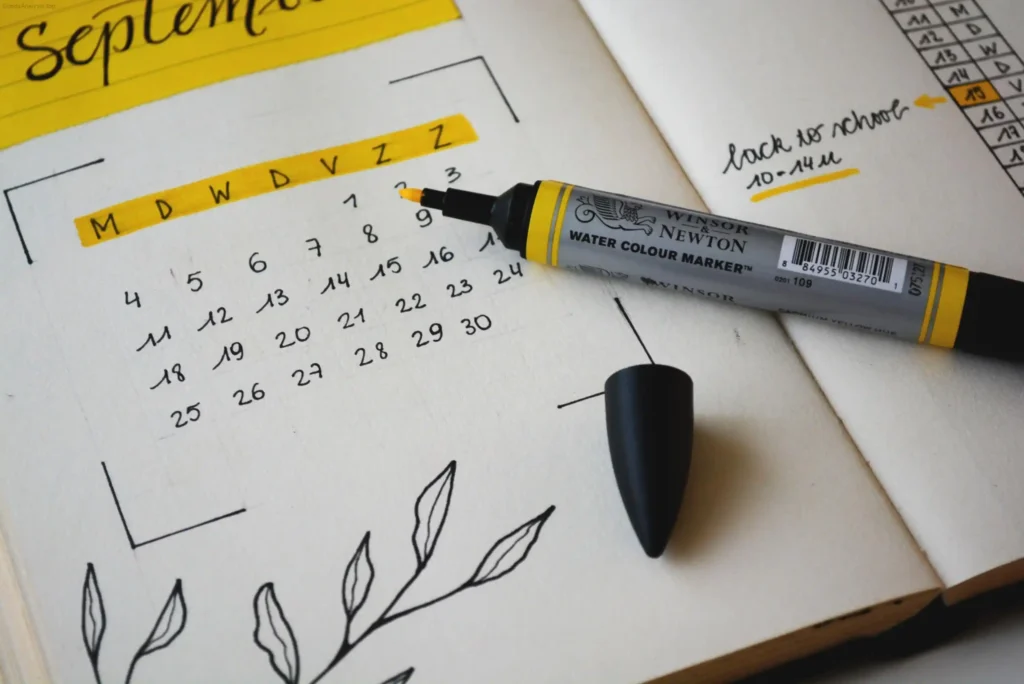Journaling might sound simple, but when you’re starting from scratch, it can feel like a daunting task. Whether you’re looking to explore your own thoughts, manage stress, or simply keep track of your daily life, journaling has been proven to offer tremendous psychological, emotional, and even physical benefits. Research supports the idea that writing can reduce anxiety, boost memory, and enhance emotional health. And let’s be honest – it can even be fun once you get the hang of it.
If you’re a beginner, don’t worry. You’re not alone, and this guide will walk you through the process in a way that’s both practical and approachable. You don’t need a fancy notebook, specialized pens, or even a perfect understanding of the process. What you need is a desire to start and a willingness to reflect on your life.
Why Journal? The Science Behind It
Let’s begin with the science. A growing body of research backs up the idea that journaling is more than just writing down your thoughts. It’s a tool for personal growth. Studies by experts in psychology and neuroscience have found that regular journaling can help reduce stress, increase self-awareness, and improve emotional well-being. It’s no surprise that many therapists recommend journaling as part of cognitive-behavioral therapy (CBT) for managing anxiety and depression.
Here are a few key benefits, supported by research:
- Mental Health Benefits: According to a study published in Advances in Psychiatric Treatment, writing about emotional experiences can help people process and manage their emotions. It reduces the intensity of negative emotions, lowers anxiety, and even enhances emotional intelligence.
- Physical Health Improvements: Research by James Pennebaker, a well-known psychologist at the University of Texas, found that expressive writing – a form of journaling – can even boost your immune system. Participants who wrote about stressful experiences showed improved immune function, which is a surprising bonus for your physical health!
- Memory and Comprehension: Studies have shown that journaling can improve memory retention and comprehension skills. Writing things down allows you to reflect on your experiences and better understand your thoughts and emotions. This in turn enhances decision-making and problem-solving abilities.
- Emotional Clarity: Writing helps to declutter the mind. A study published in The Journal of Experimental Psychology shows that journaling helps people clarify their emotions, allowing them to make better sense of complex feelings and experiences. The act of writing can be especially beneficial when you’re feeling overwhelmed.
Getting Started: No Rules, Just Pen to Paper

Alright, so you’re sold on the benefits. But where do you start? Well, I’m going to tell you something that might be a relief – there are no “right” or “wrong” ways to journal. It’s a deeply personal practice, and what works for one person might not work for another. But let me share some tips that can help you get started and make your journaling practice more meaningful.
1. Choose Your Medium: Paper or Digital?
First things first: Do you want to use a physical notebook or a digital platform? Some people swear by the tactile act of writing by hand, feeling the pen on the paper, while others find digital journaling to be more efficient and accessible. Both options are valid.
A study published in Psychological Science found that writing by hand can help with memory retention, but digital journaling has the benefit of being more convenient and easier to organize. Pick whatever feels most natural to you. But if you opt for a physical journal, don’t feel pressured to buy a fancy one – the back of an old receipt or a scrap of paper works just fine.
2. Write Daily (or Not)
Journaling is one of those activities where consistency can make a difference, but you don’t need to commit to writing every single day unless that feels right for you. Some people journal once a week, some daily. Others write only when they feel particularly inspired or stressed. The key is to make it a habit, but don’t stress if you miss a day (or three). It’s your journal – your rules.
3. Start Simple
If you’re new to journaling, don’t overcomplicate it. You don’t need to write long passages every time. A few sentences about your day or a quick reflection on how you’re feeling can be enough. You can start with prompts like:
- “What was the best part of my day?”
- “What am I grateful for today?”
- “How do I feel right now?”
You can also try a “stream of consciousness” approach, where you simply write whatever comes to mind without worrying about structure, grammar, or punctuation.

4. Reflect and Explore
Once you’ve started journaling for a while, you may notice patterns in your thoughts and emotions. Perhaps you’re often writing about the same issues, like work stress or a challenging relationship. This is where journaling really starts to help. By reflecting on these themes, you may uncover hidden feelings or desires. Use your journal as a tool for deeper self-reflection and exploration.
5. Be Honest
Here’s where the magic happens – be brutally honest with yourself. Your journal is your personal space, a place where no one else will see it unless you choose to share. Let yourself vent, express frustration, write about the things you’d never say out loud. Honesty with yourself is key to uncovering insights and healing.
Common Pitfalls (And How to Avoid Them)
While journaling is powerful, it’s not without its challenges. Here are a few potential hurdles beginners might face:
1. Writer’s Block
You sit down to write and… nothing. This happens to everyone, even the most seasoned journalers. If you find yourself staring at a blank page, try using a prompt or just write about your surroundings. Start small: “I’m sitting in a quiet room with a cup of coffee. The sun is shining, and my cat is staring at me.” Don’t worry about making it perfect. The goal is to keep writing.
2. Perfectionism
Some people get caught up in the idea that their journal entries must be “good” or “well-written.” But this is a trap! Journaling is about expression, not perfection. So what if your spelling’s off? This is for your eyes only (unless you want to share it).
3. Inconsistent Habits
It’s easy to get excited about journaling at first, only to find yourself losing interest after a few weeks. To combat this, set realistic goals. Start small, and if you miss a day, don’t beat yourself up. Journaling is meant to be a gentle, nurturing practice, not a source of stress.

4. Overthinking
A lot of people worry they’re “doing it wrong” or aren’t writing deep enough. The truth is, there’s no “right” or “wrong” way to journal. Your journal is your own space. Write what feels right.
Real People, Real Experiences
I asked a diverse group of people – different genders, ages, and cultural backgrounds – what journaling has meant for them. Here’s what they had to say:
- Sarah, 34, USA: “I started journaling to cope with my anxiety, and it’s been transformative. It helps me process my emotions when I’m feeling overwhelmed. I can see patterns in my thoughts and work through them on paper. It’s kind of like therapy, but without the cost!”
- Mohamed, 50, Egypt: “I’ve been journaling on and off for years, and it’s always been a way for me to reflect on my life. As I’ve gotten older, I’ve noticed I write more about my regrets, but also about the lessons I’ve learned. It’s a way for me to track personal growth.”
- Jessica, 62, UK: “Journaling is something I do to keep my mind sharp. It helps me remember things, and I love going back and reading my entries. It’s like a diary of my thoughts, but it also keeps me emotionally healthy.”
- Luca, 26, Italy: “I started journaling when I was in university as a way to release stress. It wasn’t until I started focusing more on gratitude journaling that I noticed a huge shift in my perspective on life. I feel happier.”
- Amina, 40, Nigeria: “Journaling has helped me see the beauty in my daily life, especially when things get tough. It allows me to reflect, but also to celebrate my small victories, which is something I didn’t always do before.”
Conclusion: Start Now
Starting a journal can seem intimidating, but it doesn’t have to be. Whether you’re looking to boost your mental health, enhance self-awareness, or simply have a space to express your thoughts, journaling is an incredibly powerful tool. Don’t worry about getting it perfect – just start writing. Over time, you’ll likely find that it becomes one of the most rewarding habits you’ve ever developed.
Happy journaling!









